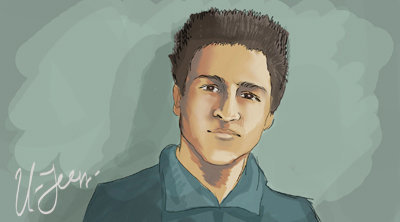MOSCOW, February 13 (RAPSI, Ingrid Burke) – US prosecutors appealed on Wednesday the decision by a Pennsylvania magistrate judge to release Russian student Vladislav Miftakhov during the period leading up to his trial, where he will face charges stemming from his alleged possession of two explosive devices.
Summarizing their stance, prosecutors concluded: “The Defendant is a manufacturer of explosives and dangerous destructive devices, is a [Russian] national with minimal ties to the community, and has committed the offense after a questionable history which has resulted in the defendant’s current status on probation at the time of this offense.”
Miftakhov is described in the motion as a Russian national that has been living in Pennsylvania for the past six months, and whose family presently lives in California.
He was charged on February 6 with the unlawful possession and construction of an unregistered destructive device after “two completed unregistered destructive devices (with fuses, explosive powder, and metal containers) were discovered in his rented apartment along with components for the construction of over 40 more devices,” as described by Wednesday’s appeal.
The affidavit supporting the complaint alleged that on January 24, law enforcement officers found a suitcase in Miftakhov’s room containing an aluminum object with an exposed fuse as well as a gas cartridge, also with an exposed fuse. Two days later, officers allegedly found in his residence a shell casing, inside of which was a handwritten scroll stating: “If you find this, you will never find me… by Vlaidslav Mikhailov.”
Prosecutors noted that the back side of the note featured an A surrounded by a circle – a symbol resembling “that which was identified with the Anarchist movement.”
Among the other items found were magnesium cord, dozens of empty CO2 cartridges, loose fuses, and packages labeled with descriptions like “1 lb. of Atomized Magnesium 100-200 mesh,” and “1 lb. of Potassium Perchlorate Chinese.”
“Miftakhov indicated to law enforcement initially that he was making fireworks. However, Miftakhov later stated that he possessed the items because ‘he was going to blow things up,’” according to the affidavit.
A magistrate judge held Monday that despite the establishment by prosecutors of probable cause to believe that Miftakhov had committed the charged offense, he should be granted pretrial release and authorized to live with his family in California.
The judge reasoned that he did not perceive Miftakhov to be “another marathon” bomber – presumably with reference to Boston Marathon bombing suspect Dzhokhar Tsarnaev, or as a danger to the community “despite the fact that he engaged in marijuana usage and explosives manufacturing in his bedroom,” according to the prosecution appeal.
The release order was stayed, however, pending the present appeal before the US District Court for the Western District of Pennsylvania.
Prosecutors urged the court to reverse the magistrate’s release order based on the nature and circumstances of the charged offense, the weight of the evidence against the defendant, and a host of other more personal factors.
They note that he was initially dishonest with law enforcement authorities with regard to his use of and intent with the explosives, although he eventually confessed – among other things – his intent to “blow things up.” The appeal adds that Miftakhov has been described by his associates as “strange and reclusive.”
Prosecutors further point to his family in California, noting that “they themselves are also not [US] citizens and have considerable ties to Russia,” later adding: “the defendant (and his family) retain their citizenship in Russia, which does not have an extradition treaty with the United States.”
Among the other reasons weighing in favor of Miftakhov’s pre-trial detention, in the view of prosecutors, are his history of arrests for burglary and trespassing and his “significant drug habit.”
Prosecutors note that in accordance with the relevant treaty agreement, the Russian consulate has been notified of Miftakhov’s arrest and charging.



